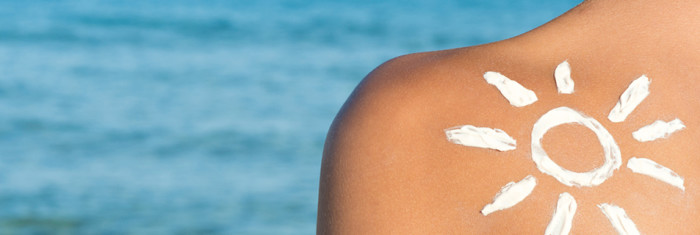
Effective sun protection, especially the use of a high-quality sunscreen, is essential to skin health, say the specialist dermatologists at Platinum Dermatology. The warming rays of the sun feel wonderful against the skin andprovide us with much-needed Vitamin D. Unfortunately, the same light energy also contributes significantly to premature ageing and skin cancer, both melanoma and non-melanoma, especially here in Australia.
- The incidence of skin cancer is Australia is one of the highest in the world
- GPs see more than 1 million patients per year regarding skin cancer
- 95 – 99% of skin cancers are caused by exposure to the sun
(Source: Cancer Council Australia)
Our skin specialists offer a wide range of treatments for skin cancers and sun-damaged skin, including the most advanced laser skin resurfacing techniques. Still, we believe that when it comes to maintaining a beautiful complexion,
“An ounce of (sun) prevention is worth
a pound of cure” – Benjamin Franklin
As Franklin was one of America’s 18th Century sons of liberty, not a 21st Century aesthetician, we’ve taken the liberty of adding the word “sun” to his oft-quoted axiom. He was also a man of science, however, and we think he’d approve of the change.
Mr Franklin would have also, undoubtedly, approved of sunscreen.
A Guide to Sunscreens with Dermatologists
There are a variety of excellent delivery systems for the skin-protecting benefits of a well-formulated sunscreen, from non-greasy creams to light mists. The problem is that many of them only go halfway in the protection they provide. When it comes to skin health and beauty,
SPF alone is not a good measureof skin protection
Sunlight is made up of three kinds of ultraviolet radiation: UVA, UVB, and UVC. UVA radiation penetrates deep into the skin, while UVB radiation penetrates just beneath the top layer of skin and is the primary cause of sunburn.UVC radiation is not an issue as the earth’s ozone layer prevents dangerous UVC rays from reaching us.
The ozone layer also filters out the majority of UVA and UVB radiation, but not all of it.
Platinum Dermatology Offers 6 Reasons to Block & Neutralise Sun Rays
We’re fortunate in Australia that all sunscreens are formulated to protect against the effect of damaging UVA and UVB rays. What the skin specialists at our practice want you to know is that the quality of UVA blockers does vary from product to product.
The best sunscreen gives sun damage a one-two kick in the rays with:
- Physical blockers such as zinc and titanium that force the sun to bounce off the skin.
- Chemical absorbers to absorb and neutralise UV rays and prevent it from damaging the DNA.
What can this two-way protection offer you? Quite a bit, as it turns out. The type of sunscreen that we have at Platinum Dermatology can help you avoid
- 1. An increase in sun spots, actinic keratosis, and other pre-cancerous skin changes
- 2. Developmentof basal cell carcinoma and squamous cell carcinoma skin cancers
- 3. Development of melanoma
- 4. Skin dryness
- 5. Pigmentation irregularities
- 6. Loss of skin elasticity (photo-ageing)
4 Ways to Get the Most from Your Broad Spectrum Sunscreen
The specialist dermatologists at Platinum Dermatology want to remind you that sunscreens are tools, not miracle workers.
You need to work with your sunscreen to keep your skin glowing. Regardless of the time of year and the sun conditions outside your door
- 1. Avoid or minimise exposure during peak sun hours
- 2. Seek shade hourly
- 3. Wear protective clothing (hat, long sleeves, sunglasses)
- 4. Reapply sunscreen regularly
Visit Platinum Dermatology for Skin Protection & Skin Solutions
Our specialists are passionate about skin health. If you have questions about sunscreen protection, need a solution for sun spots, or want a professional assessment regarding skin cancer and melanoma, we invite you to contact Platinum Dermatology on 02 8014 6500 or use the contact form on this page to schedule an appointment.
